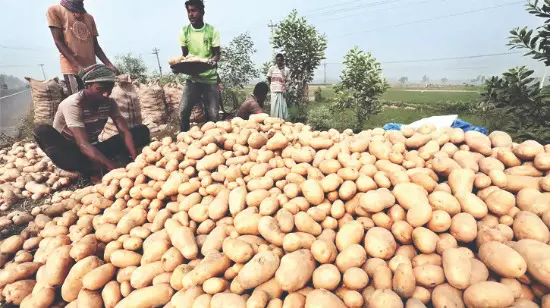
Jalpaiguri, April 7 -- In a major step towards agricultural self-sufficiency, the Bengal Agriculture department has announced plans to stop relying on Punjab for potato seeds. Over the next five years, the state aims to produce 3 lakh metric tons of potato seeds to meet its own demand, with a significant share - between 1.8 lakh and 2 lakh metric tons - being cultivated in North Bengal alone.
A high-level meeting was recently held at the office of the Deputy Director of Agriculture in Jalpaiguri, where Additional Director of Agriculture Nikhil Karmakar and other senior officials discussed the roadmap for boosting potato seed production in the region.
Traditionally, farmers in North Bengal have sourced potato seeds from Punjab. However, in recent years, yields have declined and plants have become increasingly vulnerable to diseases and pest attacks. These issues have impacted both productivity and farmers' incomes.
To address the problem, the Agriculture department is promoting the production of high-quality, disease-resistant potato seeds in controlled net houses and seed farms across North Bengal. By 2030, the state plans to produce the full 3 lakh metric tons of seeds locally, with 60 per cent allocated specifically for North Bengal.
"This is a long-term initiative. Within five years, we will be able to fully meet the state's demand with our own seeds," said Additional Director Nikhil Karmakar. "The new seeds will be more resilient to pest attacks and offer better yields. We've already consulted with experts from North Bengal Agricultural University and the International Potato Center regarding this initiative."
Local farmers have welcomed the move. Hemant Barman, a potato grower from Mandalghat in the Jalpaiguri Sadar block, said: "There's been a tradition of using seeds from Punjab, but we've learned that they're not only costly but also highly susceptible to pests and reduce productivity. The transportation costs only add to the burden. Producing seeds locally will benefit farmers across the region."
Published by HT Digital Content Services with permission from Millennium Post.
